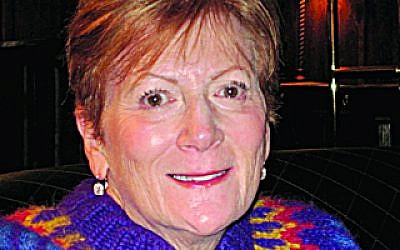Early Intervention Needed for Dyslexia
Lt. Gov. Casey Cagle formed a new committee to address public school students with dyslexia.
Even the word dyslexia is easy to misspell by those of us who don’t have the condition. Children with dyslexia struggle to connect letters to sounds, put sounds in the right order to create words and sentences, and be able to read and comprehend.
One in five Georgians has dyslexia, but unlike other educational disorders, it hasn’t been addressed sufficiently in the public schools, according to government leaders and therapists in the Jewish community. Strict standards, guidelines and regulations prevent students from being identified as they start reading and delay them getting the remedial help they need to succeed in school, those interviewed for this story say.
“Evidence shows if we can identify and address dyslexia at an early age – before students reach the third grade – we can significantly improve reading comprehension and overall academic outcomes,” Lt. Gov. Casey Cagle said in appointing a Senate Study Committee on Dyslexia. The committee is expected to begin meeting this month to address how public schools teach students with dyslexia.

“Unfortunately, on average, only 1 in 10 dyslexic students are identified by standard screenings. All of these individuals undoubtedly have the aptitude and skills to succeed, but we have to do more to identify and aid these struggling students who would otherwise excel.”
Meanwhile, private schools, including those in the Jewish community, may have an advantage identifying and intervening early because of their high academic rigor, experience teaching children with learning disabilities or dual language requirements, said Lori Wilson, a clinical psychologist and pediatric neuropsychologist with Jewish Family & Career Services.

She hesitantly estimates that 25 percent of the evaluations she completes may result in a diagnosis of dyslexia. “In general, Jewish day schools and other private schools often identify concerns early and share their concerns directly with parents.”
The nature of dual-language programs places greater language demands on students in younger grades, Wilson said. While that environment can be initially more challenging to children with dyslexia and other learning disabilities, it can lead to earlier diagnosis and intervention, she said.
The challenge for schools is to recognize the red flags for learning disabilities, even when students are not falling far behind their classmates yet, she said. “For younger children in kindergarten, we often don’t see strong deficits yet on standardized academic testing, but we see these deficits on testing that isolates areas of processing,” Wilson said.
“Sometimes parents notice something is not clicking but they are still meeting benchmarks.” They may have a gut feeling that their child is not learning to his full potential, she said.
“Educators and psychologists often describe that from kindergarten through second grade, students are learning to read. From third grade on, they are reading to learn. It is important for students to be fluent readers by the end of second grade. When students are still struggling to decode words and are reading slowly in third grade, it becomes difficult to focus on reading comprehension.”
The public schools have a tiered system that follows a “responses to intervention” model, she said. At the lower tiers, they identify students who are struggling, try interventions and then monitor progress after a few months. While it may be enough to help some students, others may need to receive formal testing, a diagnosis and an Individualized Education Program (IEP), she said. This can often lead to more learning support, but the process can be slow. “Many parents opt for private testing to help identify learning and other issues earlier, and to gain a broad range of recommendations.”
She also offers classroom observation that allows her to see how a child is functioning in school first-hand. Wilson’s evaluations may result in a diagnosis of dyslexia or other learning, attention or emotional concerns. She may recommend tutoring, speech, language or occupational therapy, or propose a different learning environment.
Wilson likes to provide feedback to students directly to help them learn their strengths and weaknesses. Parents will sometimes tell her that their child has said, “I can’t do this. I am so stupid.”
“Unfortunately, kids can often make the mistake of thinking that because they struggle with learning, they must not be smart. These are not the same thing. You can be smart, have many strengths and talents, and also have a learning disability.”
Local therapist weighs in
Susan Orloff, an occupational therapist, said that close to 70 percent of her clients have some level of sensory-perceptual visual motor processing delay. Children with these delays, ranging from mild to severe, have in many cases been confirmed to have dyslexia.

“It’s not just reading or writing symbols backwards,” Orloff said. “It’s learning how to retain unique symbols and to attach their meaning when seen in various combinations and orientations. It’s about processing, not just transcribing forms. It’s about coordinating and recruiting in combination with sensory-visual processing and motor planning a fluid and consistent response.”
What’s being done?
Public schools don’t have to lag behind. Cagle may have lost the governor’s race last week, but the dyslexia committee he appointed in June hopes to come up with ways to address the challenges of teaching dyslexic students in public schools. Sen. Fran Millar, who chairs the committee, said legislation is needed to provide schools with diagnostic capabilities and funding.
“We did a lot with autism over the years with coverage,” said Millar, R-Dunwoody, who proposed dyslexia legislation that led to the committee’s creation.

Dyslexia affects “more students than any other learning disability, which is why our state is taking the necessary steps to ensure early intervention and awareness. We want them to read at a third-grade level and that’s pretty hard if you have dyslexia.”
The committee will hold public hearings and receive information from experts to know what to include in that legislation, which Millar expects to be ready by next year.
Still, Orloff is skeptical. “No task force is going to be able to address dyslexia unless they first address how to teach the diverse learner.”
It remains to be seen whether changes are in store for Georgia public schools, but from speaking with Millar, he’s up for the challenge.




comments